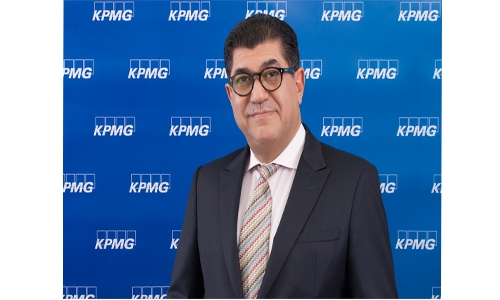Global CEO confidence returns to pre-pandemic levels
TDT | Manama
The Daily Tribune – www.newsofbahrain.com
CEOs of the world’s largest businesses are increasingly optimistic about the outlook for their own business, and despite the Delta variant slowing down the ‘return to normal’, their confidence in the global economy has returned to levels not seen since the start of the pandemic.
The KPMG 2021 CEO Outlook, which asked more than 1,300 global CEOs about their strategies and outlook over a 3-year horizon, finds that 60% of leaders are confident about the global economy’s growth prospects over the next three years (up from 42 % in the January/ February’s pulse survey).
The prospect of a stronger global economy is leading CEOs to invest in expansion and business transformation, with 69% of senior executives identifying inorganic methods (e.g. joint ventures, M&A and strategic alliances) as their organisation’s main strategy for growth.
A majority (87 %) of global leaders stated that they are looking to make acquisitions in the next 3 years to help grow and transform their businesses.
30% CEO plan to invest
The survey found that 30 % of CEOs plan to invest more than 10 % of their revenues toward sustainability measures and programs over the next three years.
Jamal Fakhro, KPMG in Bahrain’s Managing Partner, said: “The past year and a half has been challenging for companies in Bahrain and across the global markets. Despite the challenges, CEOs remain optimistic and confident about the economic recovery.
According to the survey, business leaders are actively pursuing the growth of their operations and are re-strategising their go-to-market approach.
This is a testament to the ‘backto-business’ planning. However, supply chain, cyber security, evolving customer behaviours and climate change/ ESG risks are shortlisted by global CEOs as some of the leading threats to growth within the marketplace.”
Reaching net-zero with government support
Over a quarter (27 %) of business leaders are concerned that failing to meet climate change expectations will result in the public markets not investing in their business.
Over half (58 %) of CEOs said they face increased demands from stakeholders (e.g. investors, regulators, and customers) for more reporting on ESG issues.
Three out of four (77 %) global executives believe that government stimulus will be required if all businesses are to reach net zero.
Furthermore, three-quarters (75 %) of global CEOs have identified COP26 as a pivotal moment to inject urgency into the climate change agenda.
The research found that corporate purpose - what the company stands for, its impact on communities and the planet- is driving 74 % of CEOs to act on the needs of their stakeholders (customers, employees, investors, and communities). There has also been a 10-point increase since the beginning of 2020 in the number of CEOs who say their principal objective is to embed purpose into the decisions they make to create longterm value for their stakeholders (64 %).
More than eight out of ten (86 %) global leaders state that their corporate purpose will shape capital allocation and inorganic growth strategies.
Shifting focus to operational and environmental risks
When looking at risks for growth over three years, senior executives identified three areas they see as top risks: supply chain, cyber security, and climate change.
Fifty-six % of global CEOs say that their business’ supply chain has been under increased stress during the pandemic.
Changing sentiment on the future of work
Just 21 % of CEOs say they are planning to downsize or have already downsized their physical footprint, a dramatic shift from August 2020, with the first wave of the pandemic at its peak, 69 % of global leaders said they planned to downsize their space.
CEOs are focused instead on providing increased flexibility for their workforce, with 51 % (up from 14 % in the January/ February’s pulse survey) looking to invest in shared office spaces. Furthermore, 37 % of global executives have implemented a hybrid model of working for their staff, where most employees work remotely 2–3 days a week.
Related Posts

